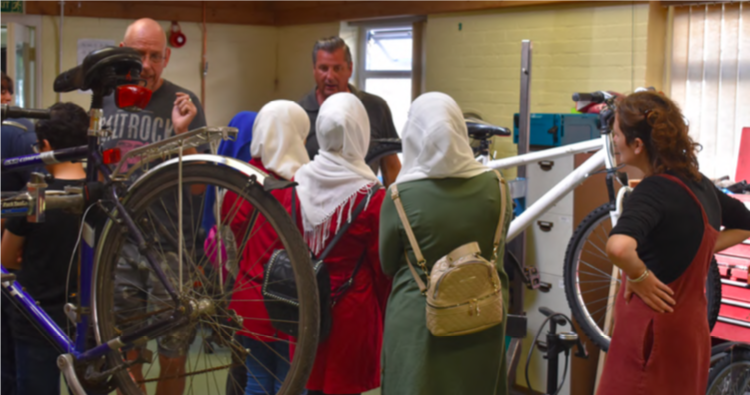Annual report for 2019
Posted: July 06, 2020
You can now read our full annual report for the year to June 2019 (2.8 MB PDF file). Here’s a taster of what we were up to:
At the start of our campaign in 2015, CRRC persuaded Cambridge City Council to agree to settle a minimum of 50 individual refugees in our city pledging our support. We were delighted that when we asked for that target to be increased to 100 the City Council agreed. By the end of the financial year in June 2019 over a 100 individual refugees in 22 families were being resettled under the Government’s Vulnerable Persons Resettlement Schemes in Cambridge. In addition to welcoming and supporting these families, CRRC provided services and support to a number of other refugees and asylum seekers who had arrived in Cambridge outside of the resettlement schemes.
New in this financial year, CRRC sponsored native language lessons for children, offered a well-attended code-club for children and teenagers and started a new petition to restore language support for driving test candidates.
To ensure that families are able to be mobile around the city, CRRC has been instrumental in providing bicycles and bike accessories for adults and children to all new families throughout the year. Many of the children and adults use their bikes to get to school, college or place of employment.

CRRC assisted several families with concerns regarding their accommodation. One of the first families to arrive had difficulties to feel welcomed in the neighbourhood of the first housing, and, therefore, took the opportunity to move to Sawston a few miles out of Cambridge. CRRC supported the family with liaison with Cambridge City Council and the management of the new housing, Hope into Action collaborating with the Catholic church in Sawston. Another family was supported by CRRC through the process of finding new, suitable accommodation as their housing contract, originally provided to the council by a private landlord, came to an end after the minimally required two-year commitment and after a challenging process for the family, they were relieved to be housed in a nice new flat in the south of Cambridge.
Five families requested the help of the dedicated CRRC Garden group during the period of this financial year. They worked together on clearing the overgrown gardens, planting vegetables, herbs, roses and visited a garden centre for seeds and tools. The CRRC Garden group also helped to liaise with the council to erect a fence and gate at the end of one garden for safety purposes. Some of the families got really into gardening and enjoyed the planning and working in their gardens while others were grateful for help as they found it more challenging to care for a garden along with child care and other commitments. Our aim in the long term is that the families will become self-sufficient and independent gardeners.
CRRC has continued to work hard to meet the families’ needs for donations and equipment. The needs were met through advertisements on our website, social media and through word of mouth, and increasingly, through created partnerships with organisations such as Emmaus, Cambridge Assessment English, OWL Bikes, Cambridge Reuse, Little Bundles, One Hope Foundation and others.
Cambridge Assessment English, for example, have been consistently fantastic in providing laptop computers and mobile phones to CRRC beneficiaries, when they are replacing their organisation’s stock. The grant agreement between the Home Office and Cambridge City Council specifically prevents the Council from supplying resettling refugees with any electrical goods such as these. Initial reliance on benefits while English is learned and skills adapted to new conditions means that these vital requirements of modern life are very much appreciated. During the reporting period we took charge of 10 lap top computers and 16 mobile phones donated by Cambridge Assessment English and distributed these to adults and secondary school age children in beneficiary families.
We deeply thank the many, generous donors and sponsors, and the volunteers who act responsively when deliveries to families are required.